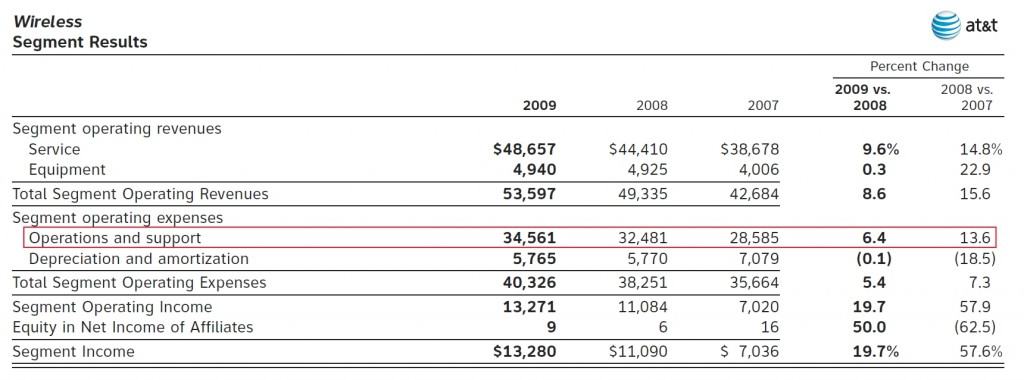
Apple's iPhone 4
As expected, Steve Jobs introduced America to the new Apple iPhone 4 today at Apple’s Worldwide Developer Conference in San Francisco. Karl Bode at Broadband Reports did a great summary on what’s new, so I won’t reinvent the wheel:
As everyone had expected, Apple just announced the long-awaited iPhone 4. According to his Jobsness, the phone is 24% thinner than the iPhone 3GS and as expected has a more powerful primary 5MP camera with flash — and a new camera on the front that will be used primarily for video chat. The phone’s stainless steel frame (sandwiched by glass) is being partially used as an antenna, something that may prove helpful for connectivity issues.
Other specs: Dual mics, 802.11n WiFi, GPS, compass, accelerometer, Quad band HSDPA (7.2Mbps), gyroscope (perfect for gaming, insists Jobs). The company says they’ve also improved the device’s battery. It can now handle 7 hours of 3G talk, 6 hours of 3G browsing, 10 hours of Wi-Fi browsing, 10 hours of video, or 40 hours of music. The phone also records HD video (720p at 30fps, insists Steve), and the new flash will stay on during video recording.
Amusingly, Apple ran into network connectivity issues while trying to demonstrate the phone’s higher resolution screen (join the club, Jobs). According to Apple, the phone comes in white or black, with the 16GB version costing $199 and the 32GB version costing $299. The phone will be available on June 24, with pre-orders beginning on June 15.
Karl also notes, as others have confirmed with us, AT&T is so eager to get this new phone into your hands (along with a new two-year contract), they are waiving the usual two-year waiting period before customers can upgrade their phones. If your contract expires anytime this year, you can obtain the phone at the subsidized price.
But should you?
For many, the iPhone 4 will represent an incremental upgrade, especially if you aren’t a power user. In this economy, is it worth $200-300 for a new phone and a new service commitment?
The upgrade for current customers, who can keep their unlimited data plan, may make sense -if- you receive tolerable service from AT&T and feel the latest phone would directly benefit you. You should consider, however, that signing a new contract will lock you into another two year marriage with the company that drove more Americans crazy with bad service, dropped calls, slow data, and irritating customer service than any other. A divorce will cost you up to $325 per phone. Their 3G coverage isn’t all that, either.
It also gives the company that loves to cap more of your money.
Unfortunately, waiting for the iPhone to arrive at Verizon Wireless is increasingly less likely to be a panacea for AT&T’s Internet Overchargitis. That’s because AT&T and Verizon are the Mary Had a Little Lamb of big telecom:
Everywhere that AT&T went,
AT&T went, AT&T went,
Everywhere that AT&T went
Verizon was sure to go.
It’s a safe bet that by the time Verizon brings forth the coveted iPhone, it will have an Internet Overcharging scheme matching AT&T’s.
If you are seeking to upgrade to a smartphone, it’s increasingly likely you’ll find a better deal with Sprint or T-Mobile, both of which have no plans for AT&T’s pricing schemes.
The best way to get a company like Verizon or AT&T to pay attention is to avoid their products when they charge too much. A dramatic reduction in demand for AT&T’s iPhone among new customers, for example, would send a clear message to Wall Street that their love of usage caps is hurting shareholder value in a big way. They follow the money. If existing customers hang on to their $30 unlimited plans while other customers head elsewhere to avoid AT&T’s Internet rationing, you’ll see an overnight conversion among many industry players suddenly demanding a return to the unlimited buffet.
Or better yet, how about giving every customer a choice of both types of plans — pay less for limited service or pay today’s prices for unlimited.
[flv width=”636″ height=”380″]http://www.phillipdampier.com/video/Apple – iPhone 4 6-2010.mp4[/flv]
Apple proclaims the arrival of iPhone 4, calling it a revolutionary upgrade. Apple released this video showcasing iPhone 4’s video capabilities that AT&T has now effectively hobbled with a wireless Internet rationing plan that punishes customers who try to use the phone’s new features. (6 minutes)
 Sprint will not limit use or throttle speeds for users of its 3G or mobile WiMax networks, despite a report from Engadget claiming the company was on the verge of applying speed throttles on its users exceeding 5 GB per month of usage.
Sprint will not limit use or throttle speeds for users of its 3G or mobile WiMax networks, despite a report from Engadget claiming the company was on the verge of applying speed throttles on its users exceeding 5 GB per month of usage.

 Subscribe
Subscribe







